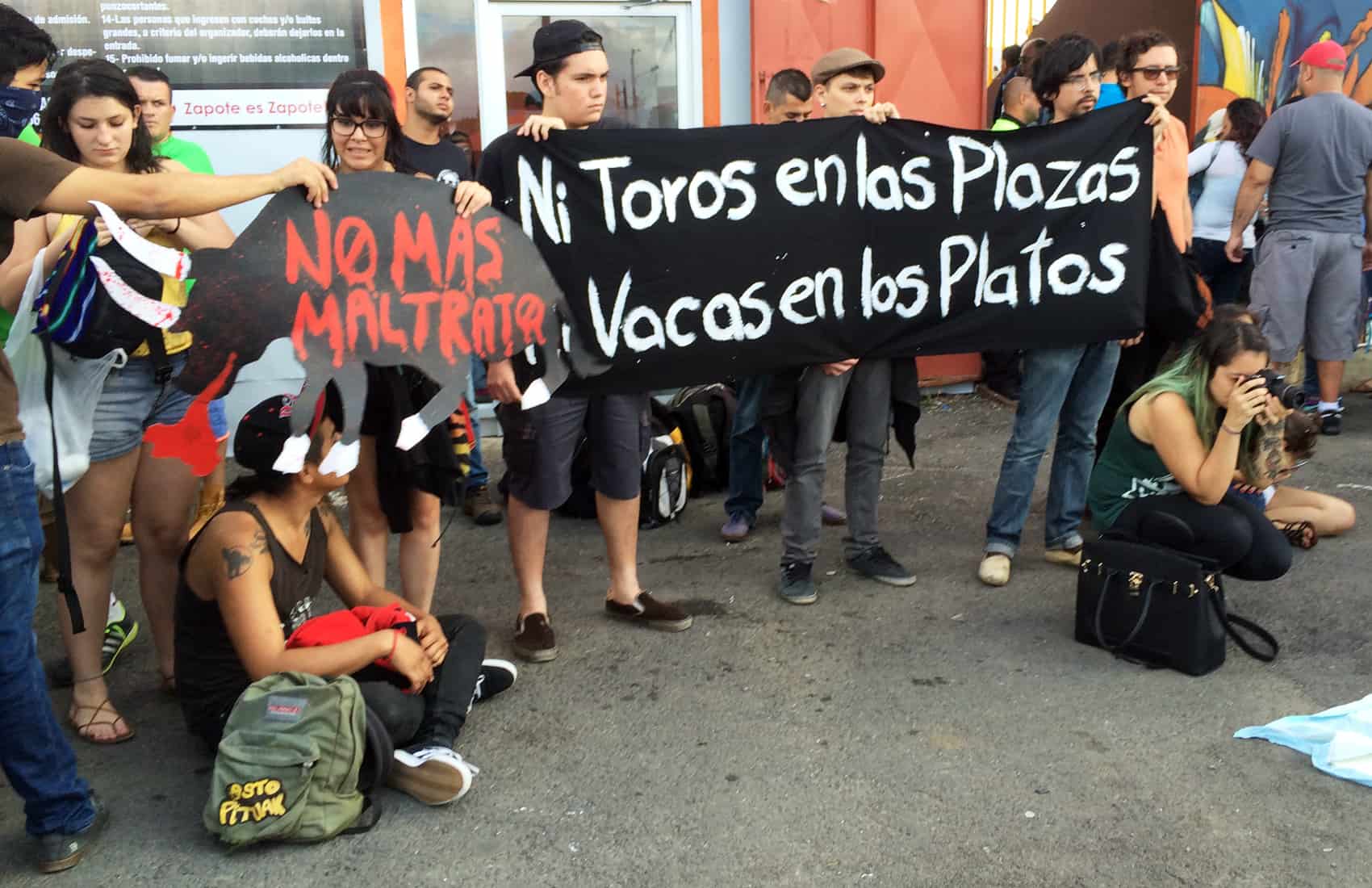Animal rights groups in July will begin collecting signatures across the country to approve a referendum in which citizens would vote on an animal welfare bill imposing stricter sanctions for animal cruelty.
Under existing Costa Rican laws, killing or harming an animal is considered a minor offense, sanctioned with a maximum of ₡200,000 (some $370).
The proposed bill includes prison sentences ranging from six months to three years and monetary fines of up to $1,600 for causing the death of an animal.
The bill also sets prison time from six months to two years and fines of up to $1,300 for those found guilty of animal cruelty or abuse. The bill describes abuse as any action affecting an animal’s health, including the loss or disabling of a body organ.
It also proposes penalties for individuals who promote animal fights, perform sexual acts on animals or practice vivisection on them for purposes not related to scientific research.
The referendum is the latest attempt from animal rights groups to get the bill’s approval, as lawmakers who oppose the initiative have delayed its discussion at the Legislative Assembly, mostly by filing dozens of motions against it.
President Luis Guillermo Solís during his campaign promised the bill would be a priority for his administration, but actions from opposing lawmakers have kept the initiative low on the legislative agenda. The bill is currently at number 73 on that agenda, meaning it is unlikely to be discussed or voted on in the near future.
Lawmakers who oppose the bill, including the National Liberation Party’s Juan Marín and Aracelly Segura, the Broad Front Party’s Suray Carrillo and Libertarian Otto Guevara, have demanded that several articles be removed, arguing that they would impair farmers’ ability to use farm animals. They also say the bill would end entertainment events such as Tico bullfighting, rodeos and horse parades, all of which represent Costa Rican traditions.
Besides making the bill a bottom priority, lawmakers earlier this year filed more than 70 motions against it. Those motions further delay any action on the bill before the full Assembly, as lawmakers would be forced to discuss and vote on the motions first.
Marín said in February that opponents are going to block the initiative “by using any available procedure authorized by legislative regulations, including filing all those motions.”
Marcela Guerrero from the ruling Citizen Action Party, one of the supporters of the bill, said lawmakers’ opposition to the proposal is unjustified because it includes provisions that exclude sanctions on the use of animals in farming and other economic activities, such as fishing, aquaculture, ranching and veterinary practices.
“It also allows under a number of regulations Tico bullfighting, horse parades and other traditional events in which animals participate,” she said.
Lawmakers’ refusal to discuss the Animal Welfare Bill could cost taxpayers up to ₡2,500 million ($4.6 million). Héctor Fernández, electoral registry director of the Supreme Elections Tribunal (TSE), said that is the estimated cost of a national referendum, as stipulated in this year’s budget.
The tribunal in March approved the request for a referendum filed in October 2014. Last Friday it approved the form that, starting July 2, will be used to collect just over 160,000 signatures — equivalent to 5 percent of registered voters — required to call for a national referendum.
Juan Carlos Peralta Víquez, president of the Association for Animal Welfare and Protection, one of the groups promoting the referendum, said this is their last resort after lawmakers filibustered the bill. “We would be more than happy to save taxpayers the millions that it would cost,” he said earlier in May.
Peralta said his group on Monday began printing the forms that will be sent to TSE for certification.
Once the documents are approved, animal rights advocates and volunteers will have up to 10 months to collect the signatures, which will be analyzed and approved by TSE justices before a referendum is called.
Peralta said he is confident that the process will be successful, saying activists have the necessary structure to collect enough signatures. He said 46 animal rights groups and hundreds of citizens have already pledged to volunteer in collecting signatures.
The registration period for volunteers ends June 3. He said people interested in helping should send their personal data by email to aba_animal@hotmail.com.
“Our goal is to collect 250,000 signatures in four months and therefore complete the process in October so the TSE can call for the referendum in early 2017,” Peralta said.

